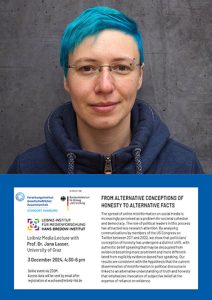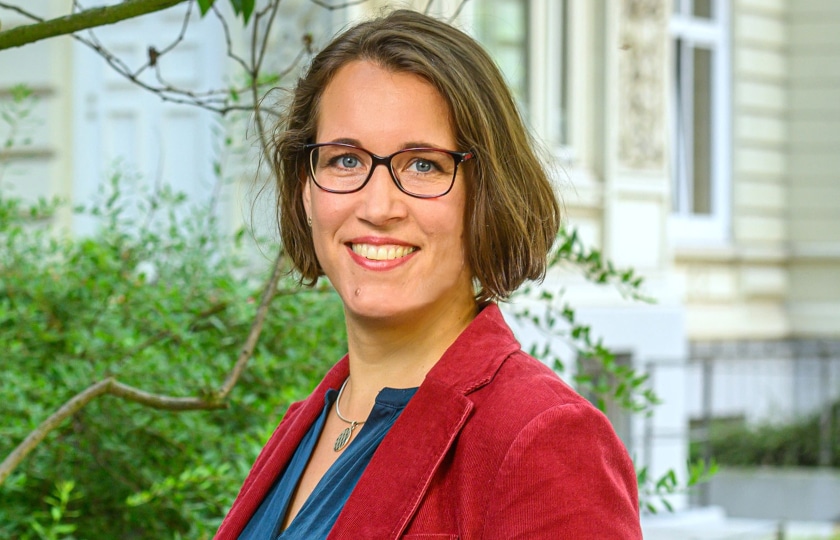The next Leibniz Media Lecture will be hosted by the Hamburg section of the Research Institute Social Cohesion (RISC). Prof. Dr. Jana Lasser, University of Graz, talks about the spread of online misinformation on social media as a problem for societal cohesion and democracy.
Moderation: PD Dr. Jan-Hinrik Schmidt
The event will be held in English.
About the Presentation
The spread of online misinformation on social media is increasingly perceived as a problem for societal cohesion and democracy. The role of political leaders in this process has attracted less research attention, even though politicians who ‘speak their mind’ are perceived by segments of the public as authentic and honest even if their statements are unsupported by evidence. By analysing communications by members of the US Congress on Twitter between 2011 and 2022, Jana Lasser shows that politicians’ conception of honesty has undergone a distinct shift, with authentic belief speaking that may be decoupled from evidence becoming more prominent and more differentiated from explicitly evidence-based fact speaking. Lasser shows that for Republicans—but not Democrats—an increase in belief speaking of 10% is associated with a decrease of 12.8 points of quality (NewsGuard scoring system) in the sources shared in a tweet. In contrast, an increase in fact-speaking language is associated with an increase in quality of sources for both parties. Our study is observational and cannot support causal inferences. However, the results are consistent with the hypothesis that the current dissemination of misinformation in political discourse is linked to an alternative understanding of truth and honesty that emphasizes invocation of subjective belief at the expense of reliance on evidence.
About the Speaker
Dr. Jana Lasser is a Professor for Data Analysis at University of Graz where she leads the research group of Complex Social & Computational Systems at the interdisciplinary center IDea_Lab. She is also Associate Faculty at the Complexity Science Hub Vienna. She researches emergent phenomena in complex social systems, employing methods from machine learning, data science, natural language processing and computational and statistical modelling to understand how humans behave in socio-technical environments. Her current research interests include the effectiveness of counterspeech strategies and the spread of misinformation on social media platforms, the fracturing or our society’s understanding of “honesty” and the impact of social media recommendation algorithms on societal outcomes.



